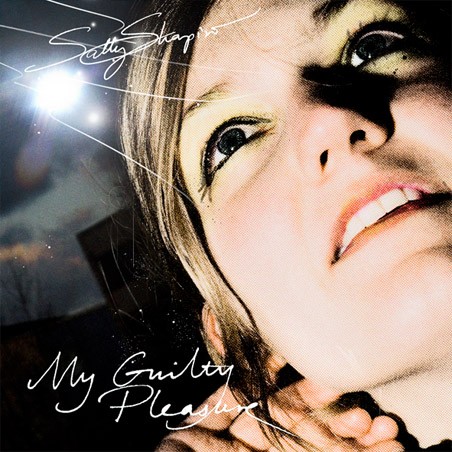Here’s a story: A producer discovers a talented singer who’s so shy she can’t sing in front of him during recording. The duo (singer and producer) goes by a singular name that’s not even theirs. This shyness also extends to interviews, photo shoots and concert tours, so that the duo won’t do them.
Reporters can’t tell if the two are playing a joke on them, especially given the awful album covers to the EPs and the first album. Once the album is released — with a new North American cover, no less — reviewers are enamored with the feathery, spacy vocals and Italo-Disco style music enhanced by the duo’s mystique.
Sally Shapiro’s background story makes for a good read and seems impossible in an age of extreme personal disclosure. (And it did prove to be impossible in that the group has toured and given interviews, albeit on a very limited scale, since the release of its 2007 album, Disco Romance.)
Now the duo has released My Guilty Pleasure, which, according to its Metacritic.com score, shows reviewers giving it either a lukewarm reception or panning it.
In a way, these reviews make sense given that what was so appealing about Disco Romance was its sense of romantic nostalgia and shy innocence: in Shapiro’s wistful voice, in producer Johan Agebjorn’s Italo-Disco music from the ’80s, in its winter-themed song titles.
Whereas Sally Shapiro’s Disco Romance sounded like the perfect winter soundtrack, My Guilty Pleasure rushes in like the spring snow melt.
Instead of just longing and doubt, My Guilty Pleasure finds the shyness blossoming into a new sense of confidence. Shapiro sounds as if she’s standing a few inches closer to the mic, making her voice sound more forward, especially on “”Moonlight Dance”” and the club-ready “”Save Your Love.”” Agebjorn moves his music in a more orchestral direction that is comfortable swinging from delicate piano to bold dance beats while maintaining its roots in Italo Disco.
Shapiro is willing to take a chance on love, as in “”Love in July””: “”Give me my love in July / you make the sun shine / dry off the tears in my eyes / don’t let me down / I promise to stay around.””
On “”My Fantasy,”” Shapiro sounds even more confident in what she wants and how she feels: “”I couldn’t find you although I’ve tried / I have been longing with all my heart / I was in need for a brand new start.””
And that’s the problem with nostalgia: there’s no room for something — or someone — new.









